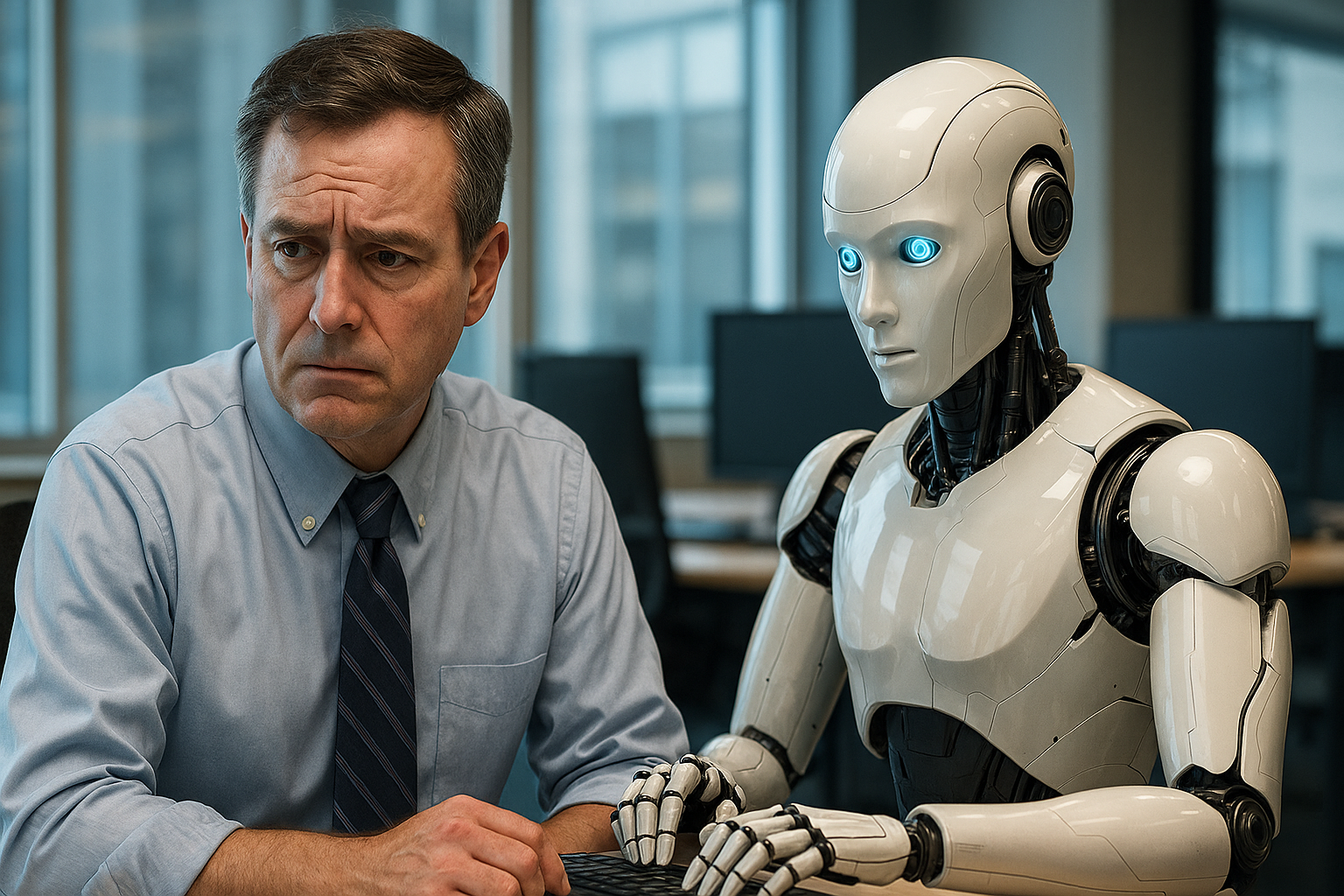The debate around AI and jobs in the context of the future of internet privacy is no longer abstract. Your next boss could be an algorithm connected to the internet. Artificial intelligence is already writing emails, drafting legal briefs, scanning medical images, and replacing cashiers at your local store.
Beyond convenience, two burning questions define the future of the internet: will the future of work keep humans in the loop, and what happens to your digital privacy in the process?
AI and jobs: what’s really at stake?
According to the World Economic Forum: Future of Jobs Report, nearly 40% of jobs could be automated by 2030.
- Journalists now compete with generative models for fast-breaking news.
- Accountants and lawyers use predictive systems that analyse in seconds.
- Retail workers give way to self-checkout and biometric payments.
- Even doctors face diagnostic tools outperforming them on narrow tasks.
The danger isn’t only replacement. Human work is being absorbed into networks, redistributed and redefined by algorithms—this is where AI and jobs collide with incentives and data power.
AI and jobs: when will the impact be strongest?
- By 2025 → customer service, retail, admin, basic copy.
- By 2030 → 30–40% of admin/analytical roles (finance, HR, law) could shrink.
- By 2040 → some industries operate AI-first; humans focus on creative/strategic supervision.
The key is adaptation: the labour market and AI will evolve together as workflows are redesigned.
Digital privacy under siege
If roles survive automation, privacy may not. Employers test monitoring of emails, keystrokes, browsing, biometrics and location. Performance reviews could soon be produced by systems tracking your entire digital footprint.
In Europe, the European Commission: EU AI Act targets high-risk uses (e.g., mass biometric ID). Will regulation move fast enough to protect employees’ rights as AI and jobs dynamics accelerate?
Related on our site: Privacy articles
The illusion of solutions: regulation vs Web3
Regulation
- EU AI Act restricts high-risk cases like biometric mass surveillance.
- US leans innovation-first, regulation-later.
- China integrates AI into state surveillance/governance.
Web3 alternatives for AI and jobs
- Self-sovereign IDs (Polygon ID, Spruce, Fractal) → user-controlled disclosure.
- Zero-knowledge proofs → prove qualifications without exposing personal data.
- DAOs & smart contracts → programmable, direct work agreements.
Both paths matter; the gap between law and adoption still leaves workers exposed where the future of work meets automation.

The mutation of work with AI
AI won’t simply destroy roles; it will mutate them. Emerging functions:
- Prompt engineers : interfacing humans and models.
- Immersive reality architects : AR/VR spaces, digital cities.
- AI coaches : ethical and strategic integration.
- Data curators : safer, higher-quality training sets.
Real cases: earlier cancer detection, freelancers 5× productivity with co-pilots, artists shipping visuals/music in minutes. The divide isn’t humans vs machines, but humans with AI vs humans without it.
Future-proofing AI and jobs in the digital age
- Master key tools → ChatGPT, automation, creative generators.
- Double down on human leverage → creativity, empathy, judgment.
- Understand data & privacy → your value follows your footprint.
- Adopt Web3 IDs → disclose minimally, prove maximally.
- Iterate → treat models as co-workers, not competitors.
Related on our site: Transhumanism articles
Is AI good or bad for work?
AI is an amplifier. Resisting change feels like threat; adapting turns it into freedom and output. “AI won’t take your job. A human using AI will.” The question for AI and jobs is how quickly you level up.
The hidden benefit: reinventing the future of internet
- Tokenised labour : skills/time as digital assets.
- DAO-driven work : borderless, instant careers.
- Sovereign digital IDs : control your professional footprint.
- Transhumanist augmentation : humans enhanced, not erased.
The internet’s next era isn’t about losing work; it’s about resetting what work means for the employment & AI nexus.
Conclusion: from fear to empowerment
Yes, roles will disappear and privacy is at risk. But this ends with a choice: be replaced by the system, or use it to reinvent yourself. By 2030, most roles look nothing like today. Those who ride the wave gain agency. The real question for AI and jobs: victim, or driver?
FAQ
Will AI replace most jobs?
Not all. Automation targets tasks first; routine/admin roles are most exposed.
How many jobs could be automated by 2030?
Around 40%, especially admin and retail. See the WEF report.
When will the impact peak?
Major wave 2025–2030; deeper, industry-wide shifts by 2040.
How do I future-proof my role?
Learn core tools, lean into human skills, and use sovereign IDs to control data.
How will AI affect workplace privacy?
Expect monitoring of digital activity. The EU AI Act seeks to limit high-risk uses like biometric mass ID.
What can Web3 add?
Self-sovereign IDs and zero-knowledge proofs let you prove value without oversharing, key to aligning innovation with worker rights in the future of work.





